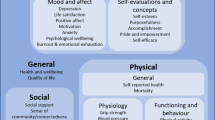Abstract
Background
It is widely acknowledged that patient recruitment is a significant challenge and represents one of the primary reasons for drug development delays. Data from the Center for Information and Study on Clinical Research Participation (CISCRP) “Perceptions & Insights” study indicate that the 18- to 34-year-old Generation Y subgroup was the least willing to participate in a clinical trial.
Methods
The willingness of Generation Y to participate in clinical studies was compared to that of older groups in the CISCRP study. These results were then compared to data from earlier studies.
Results
Statistically significant differences existed between the willingness of Generation Y to participate in clinical studies when compared to older age groups. Generational perceptions and value differences were explored via corporate and sociological research findings to determine why disparities existed among age groups regarding the willingness for clinical trial participation.
Conclusions
Preliminary results indicate that members of Generation Y are less willing to participate in clinical studies and that these differences are truly generational and not simply age related.
Similar content being viewed by others
References
Trauth JM, Musa D, Siminoff L, Jewell IK, Ricci E. Public attitudes regarding willingness to participate in medical research studies. J Health Soc Policy. 2000;12(2):23–43.
EvaluatePharma. World Preview 2018. Worldwide Total Pharmaceutical R&D Spend: 2004–2018. Wilmington, Delaware: EvaluatePharma Inc; 2013.
Petryna A. When experiments travel: clinical trials and the global search for human subjects. Available at: http://books.google.com/books?hl=en&lr=&id=BnG1-VigFi8C&oi=fnd&pg=PR10&dq=reasons+for+outsourcing+clinical+trials&ots=x4m-IaupSE&sig=rXOGFkg_EBCFC1NLlzEu0rhXKVY#v=onepage&q=reasons%20for%20outsourcing%20clinical%20trials&f=false. Accessed November 15, 2013.
Findlay S. Outsourcing clinical trials: growth continues. Pharmaceutical Technology Europe. 2009;21(5):51–52.
Kaitin K. Global site landscape remains highly fragmented with variable performance. Tufts University. Impact Report. 2013;15(2):1–4.
Center for Information and Study on Clinical Research Participation (CISCRP). Perceptions & insights study: public and patient perceptions of clinical research. Available at: http://www.ciscrp.org/professional/reports/. Accessed November 15, 2013.
Getz K. Public confidence and trust today: a review of public opinion polls. The Monitor. 2008;22(5):17–21.
Nappo SA, Iafrate GB, Sanchez AM. Motives for participating in a clinical research trial: a pilot study in Brazil. BMC Public Health. 2013;13(19):1–9.
Stunkel J, Grady C. More than money: a review of the literature examining healthy volunteer motivations. Contemporary Clinical Trials. 2011;32:342–352.
Getz K. New insights into study volunteer perceptions and experiences to inform patient-centric clinical trials. Clinical Researcher. 2014;28(2):17–21.
Brintnall-Karabelas J, Sung S, Cadman ME, Squires C, Whorton K, Pao M. Improving recruitment in clinical trials: why eligible participants decline. J Empir Res Hum Res Ethics. 2011;6(1):69–74.
Guadagnoli E, Ward P. Patient participation in decision-making. Soc Sci Med. 1998;47(3):329–339.
Verheggen FW, Nieman F, Jonkers R. Determinants of patient participation in clinical studies requiring informed consent: why patients enter a clinical trial. Patient Educ Couns. 1998;35:111–125.
Epstein RM, Peters E. Beyond information: exploring patients’ preferences. JAMA. 2009;302(2):195–197.
Siegal G, Bonnie RJ, Appelbaum PS. Personalized disclosure by information-on-demand: attending to patients’ needs in the informed consent process. J Law Med Ethics. 2012;40:359–367.
White J. Thinking generations. Br J Sociol. 2013;64(2):216–247.
Carlson E. 20th-century U.S. generations. Population Reference Bureau. 2009;64(1):1–20.
Smola KW, Sutton CD. Generational differences: revisiting generational work values for the new millennium. J Organ Behav. 2002;23:363–382.
Jorgensen B. Baby boomers, generation X and generation Y? Foresight. 2003;5(4):41–49.
Ng ESW, Schweitzer L, Lyons ST. New generation, great expectations: a field study of the millennial generation. J Bus Psychol. 2010;25:281–292.
Getz K. New insights into study volunteer perceptions and experiences to inform patient-centric clinical trials. Clinical Researcher. 2014;28(2):17–21.
National Institutes of Health. Grants and funding: glossary and acronym list. Available at: http://grants.nih.gov/grants/glossary.htm#C. Accessed January 2, 2014.
Pearson Education. Medical advances timeline. Available at: http://www.infoplease.com/ipa/A0932661.html. Accessed April 27, 2014.
Pew Research Center, Pew Internet & American Life Project. The social life of health information: Americans’ pursuit of health takes place within a widening network of both online and offline resources. Available at: http://www.pewinternet.org/files/old-media//Files/Reports/2009/PIP_Health_2009.pdf. Accessed April 27, 2014.
Allerton HE. Generation why: they promise to be the biggest influence since the baby boomers. Training & Development. 2001;55(11):56–60.
Research America. National poll on clinical research. Available at: http://www.researchamerica.org/uploads/June2013clinicaltrials.pdf. Accessed April 29, 2014.
YPULSE. Millennials and news, fact-checked. Available at: http://www.ypulse.com/post/view/millennials-and-news-fact-checked. Accessed April 27, 2014.
Twenge JM, Campbell WK, Freeman EC. Generational differences in young adults’ life goals, concern for others, and civic orientation, 1966–2009. J Pers Soc Psychol. 2012;102(5):1045–1062.
Aspen Education Group. Narcissistic and entitled to everything! Does Gen Y have too much self-esteem? Available at: http://aspeneducation.crchealth.com/articles/article-entitlement/. Accessed April 27, 2014.
Author information
Authors and Affiliations
Corresponding author
Rights and permissions
About this article
Cite this article
Nelson, A.M., Martin, I.G. & Getz, K.A. Generational Value Differences Affecting Public Perceptions of and Willingness to Participate in Clinical Trials. Ther Innov Regul Sci 49, 940–946 (2015). https://doi.org/10.1177/2168479015583727
Received:
Accepted:
Published:
Issue Date:
DOI: https://doi.org/10.1177/2168479015583727




